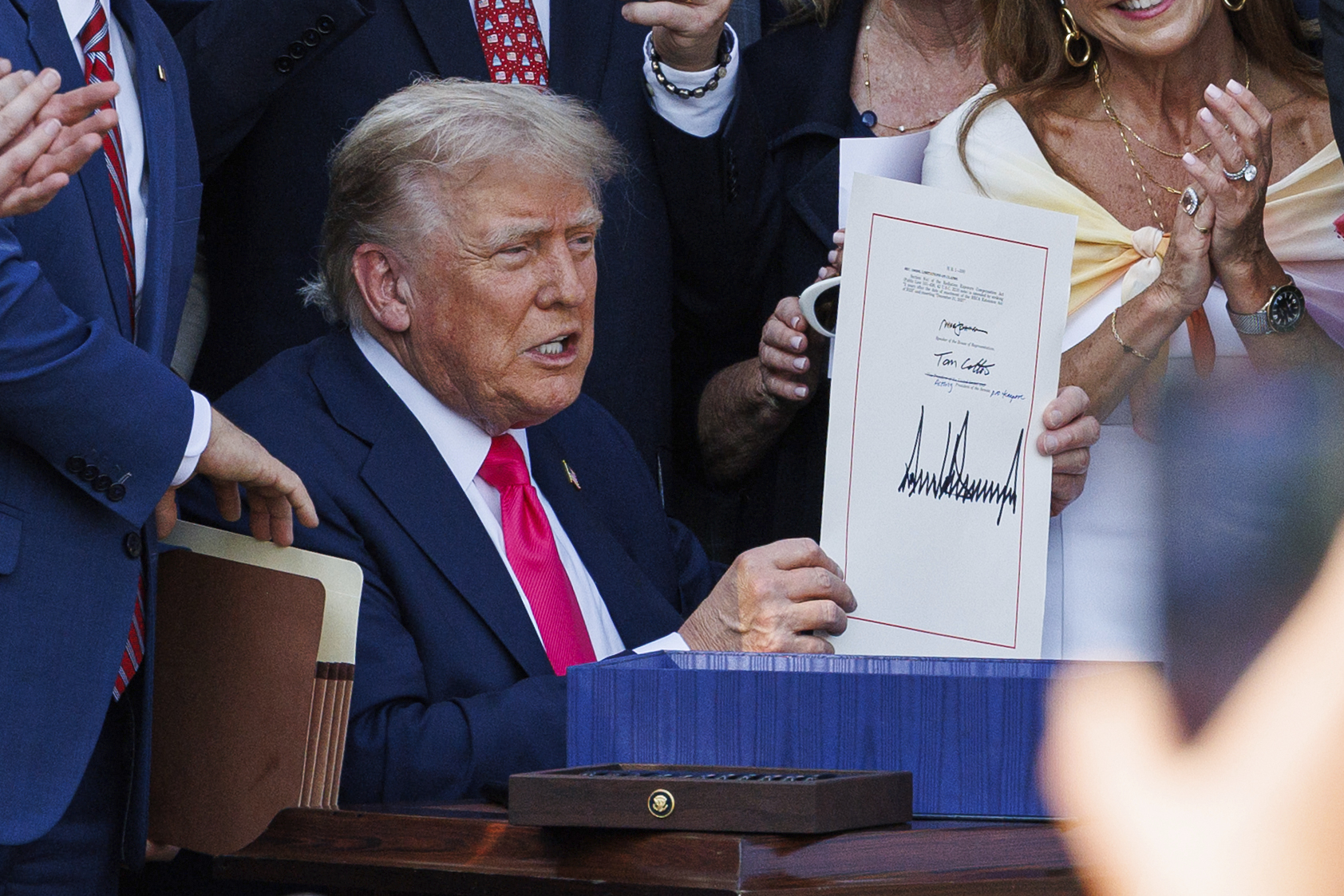
President Donald Trump‘s One Big Beautiful Bill (OBBB) will impact green card holders and legal immigrants by limiting access to some health benefits and imposing new taxes on money sent overseas.
Why It Matters
The nonpartisan Congressional Budget Office estimates that the bill could leave 11.8 million more Americans uninsured by 2034 and increase the federal deficit by nearly $3.3 trillion over the next 10 years. According to CBO estimates, 1.3 million lawfully present immigrants will be uninsured by 2034 due to Trump’s flagship domestic policy legislation. The key legislation was signed into law by the president on July 4.
Aaron Schwartz/Sipa via AP Images
What To Know
Lawful permanent residents, refugees, survivors of domestic violence, and individuals on valid work or student visas are currently eligible to purchase health insurance through the Affordable Care Act (ACA) marketplace. Many qualify for federal tax credits that help lower monthly premiums, and some may also meet requirements for Medicaid or Medicare, depending on their income and other factors.
The OBBB would significantly restrict that access. If fully enacted, it would prevent some lawfully present immigrants from receiving federal subsidies for health insurance. Low-income green card holders still within the mandatory five-year waiting period for Medicaid, along with refugees and domestic violence survivors, would be among those most affected by the loss of subsidized health insurance under the measure.
Under the changes only green card holders, certain individuals from Cuba or Haiti, and specific Pacific Island communities would remain eligible for federal benefits. Most other immigrant groups, regardless of their legal status, could lose access to affordable coverage options.
The OBBB introduces a 1% tax on remittances sent abroad, a move likely to affect millions of immigrant families who regularly send money to relatives in their home countries.
Supporters say the measure could generate significant federal revenue, but critics argue it places an added financial burden on low and middle-income workers who rely on remittances to support loved ones overseas.
The OBBB also allocates $45 billion to ICE for expanding detention capacity to nearly 100,000 beds, $14 billion for transportation and deportations, and $8 billion to hire 10,000 additional deportation officers.
What People Are Saying
Veronique de Rugy, George Gibbs Chair in Political Economy and Senior Research Fellow with the Mercatus Center, previously told Newsweek: “Taxing these transfers effectively reduces household income in those communities, potentially pushing families back into poverty or forcing them to forgo essential spending. That, in turn, reduces local demand, suppresses entrepreneurship, and weakens social cohesion in already vulnerable regions.”
Abigail Jackson, a White House spokesperson, previously told Newsweek: “President Trump’s One, Big, Beautiful Bill protects and preserves Medicaid for vulnerable Americans who rely on it by eliminating waste, fraud, and abuse in the program. The funding to secure our border and deport criminal illegal aliens is the fulfillment of President Trump’s campaign promise and the mandate the American people gave him when they sent him back to the White House. And the tax cuts and pro-growth provisions will drive our economy even further into the Golden Age.”
John Slocum, Executive Director, Refugee Council USA, said in a statement: “These proposals represent a shocking reversal of bipartisan commitments that have, for decades, helped newcomers recover, rebuild, and contribute to their new communities. Forcing refugee families to go hungry or without health care will not strengthen our economy or national security, but will do irreparable harm to individuals we have promised to protect and impose unnecessary costs on local systems already under strain.”
What Happens Next
The administration’s flagship domestic policy could result in hundreds of thousands of lawfully present immigrants, including asylum seekers, trafficking survivors, and refugees, losing access to Affordable Care Act marketplace coverage by eliminating the subsidies that help keep premiums affordable.
